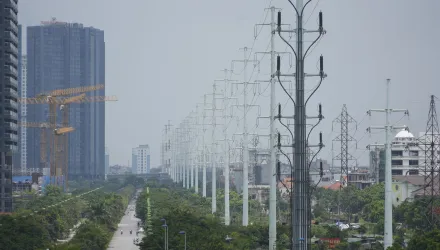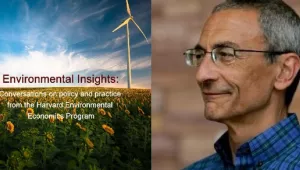Analysis of Policies to Reduce Oil Consumption and Greenhouse Gas Emissions from the U.S. Transportation Sector
U.S. transportation policy is changing rapidly, motivated by concerns over climate change and energy security. Not only are economy-wide CO2 prices expected to soon be in place, but increasingly stringent performance-based standards are being proposed. Using the National Energy Modeling System, the Energy Technology Innovation Policy research group has analyzed the impact of economy-wide CO2 prices in combination with transportation sector specific policy options including transportation (fuel) taxes, extended fuel economy standards, and performance-based tax credits. The results suggest that the policy options currently considered will fail to meet the "17% of 2005" GHG emissions reduction target in the Waxman-Markey Bill, or even the Obama administration's "14% of 2005" GHG emissions target. Economy-wide CO2 prices motivate large reductions in CO2 emissions from the electrical power sector but do not, on their own, result in significant reductions in CO2 emissions from transportation. Transportation taxes appear to be the most effective option for reducing GHG emissions, largely because they reduce vehicle use in addition to improving vehicle technology. On the other hand, tax credits for alternative-fuel vehicles appear to be an expensive and ineffective path to reducing CO2 emissions from transportation.
Beverages will be provided. Please come ready to discuss...



